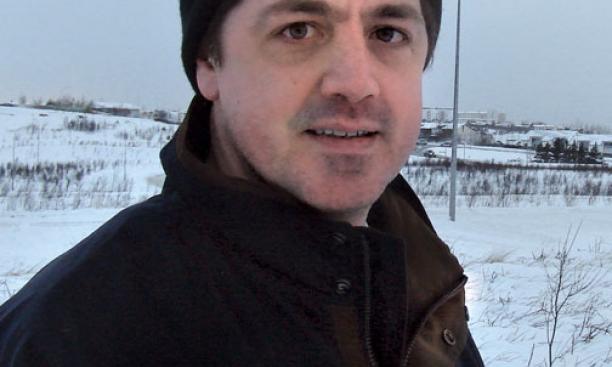



When Bruce Kennedy ’92 took on his latest project, to help write, direct, and produce a 14-part series, NextWorld, which explores what life might be like 30 years from now, he struggled with how to film the future and depict complicated concepts that don’t lend themselves to visual representation.
For the episode “Rise of the Superhuman,” which explores how scientists at the University of California, Irvine are developing neuro-accelerants, a class of drugs to enhance the performance of brain cells, Kennedy and his collaborators had to figure out how to represent the science involved. They filmed a college track team. First they shot a runner passing a baton to another runner; the athletes represented neurons and the baton a signal moving from one neuron to another. Next, to show the increased brain function that would occur with the introduction of the drugs, the crew filmed a runner passing batons to 10 other runners — illustrating how they would help an individual think better by speeding up the thought process. The drugs will be marketed to combat degenerative diseases of the brain, such as Alzheimer’s, by boosting brain function, says Kennedy. Eventually, people might take it to improve learning and memory.
With every new TV project, Kennedy takes a “crash course” on the topic at hand, interviewing experts, digesting literature, and then distilling the information for TV viewers. “It enables me to be a student for the rest of my life,” says Kennedy, whose credits include a documentary on D-Day, Brothers in Arms (2005) for the History Channel, and Dust to Dust: The Health Effects of 9/11 (2006) for the Sundance Channel.
The NextWorld series debuted on Discovery Channel last fall, and is being aired on Science Channel, probably through March (go to Discovery.com for listings). Episodes include “Future Life on Earth,” which looks at living in floating cities and flying to work; “Future Intelligence,” which shows android helpers in homes; and “Future Metro,” which takes viewers inside tomorrow’s urban transportation systems, complete with stackable cars and underground automated highways.
To work on the series, Kennedy, a classics major at Princeton who earned a master’s degree in performance studies at NYU, had to learn about biology, urban design, artificial intelligence, and alternative energy systems, among other topics.